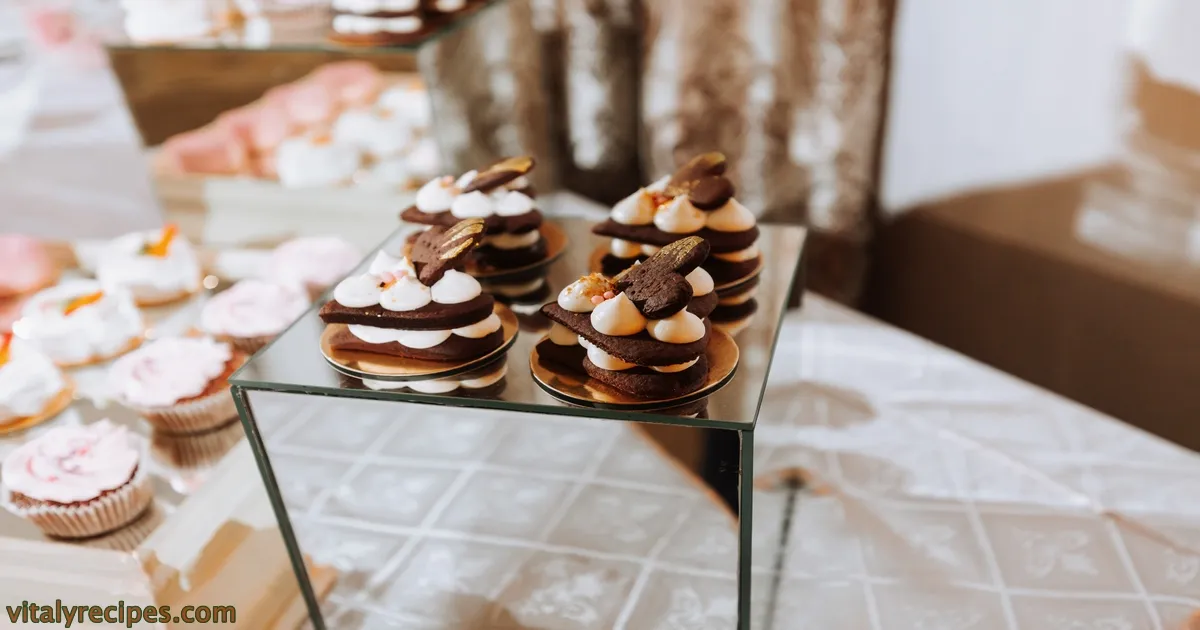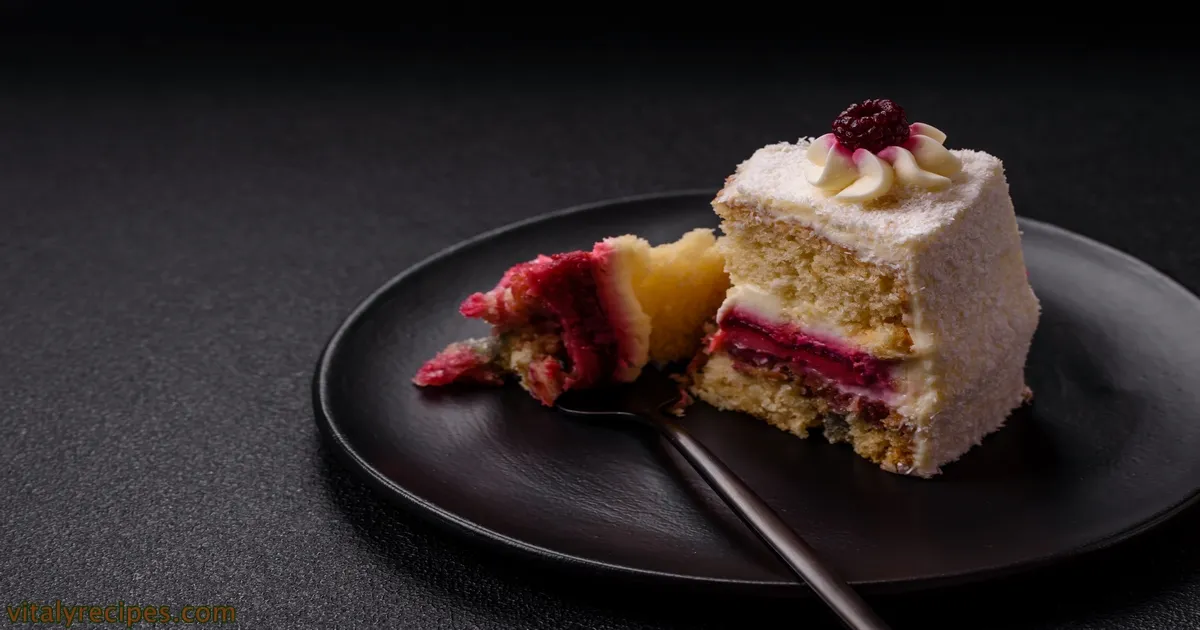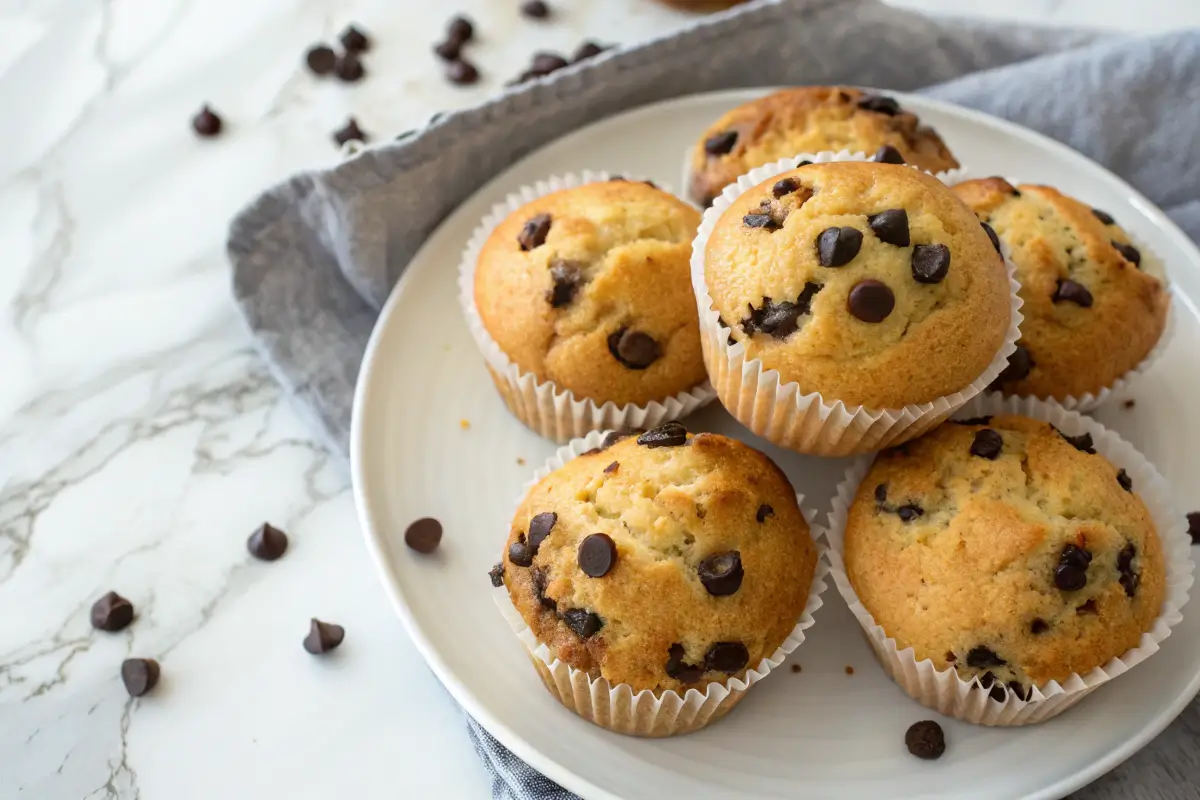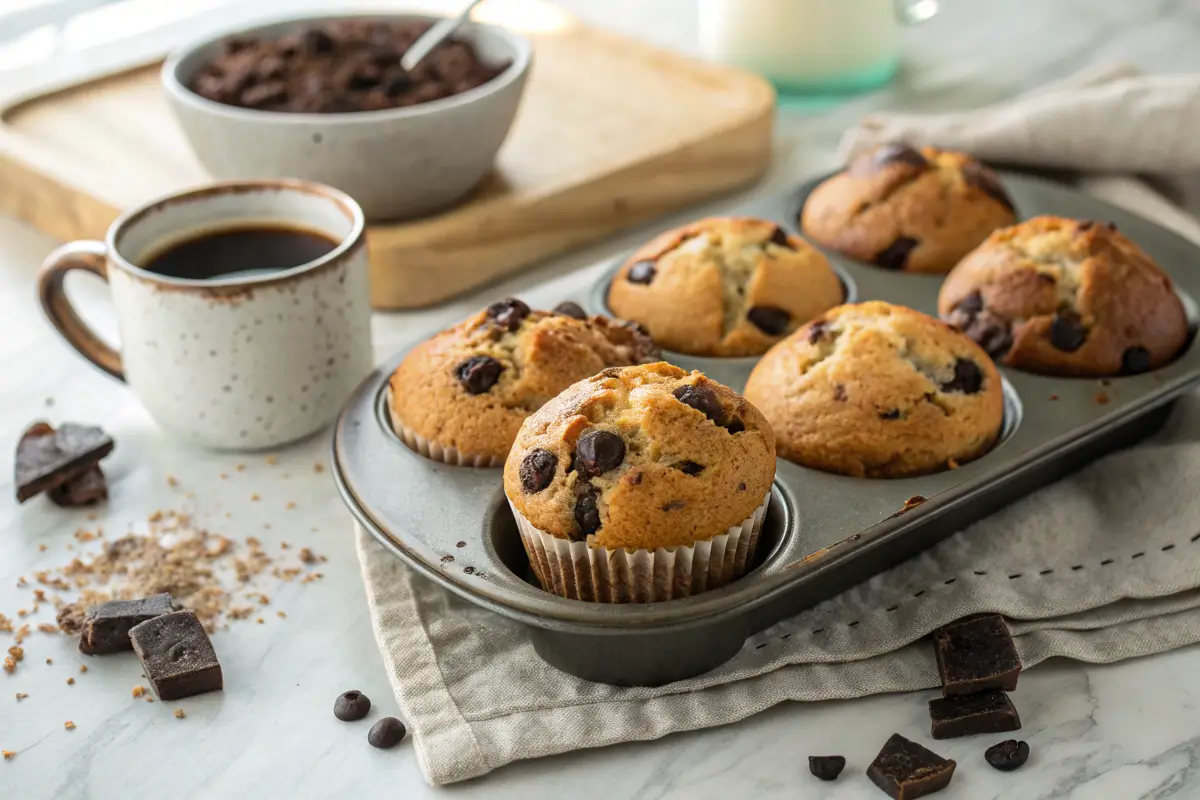
Introduction
As parents and caregivers, we are always on the lookout for ways to make life easier especially when it comes to baking. Whether you’re whipping up a cake for a school event, a family celebration, or just a quick treat for the kids, every minute counts. One burning question many parents ask is, Does a smaller cake take less time to bake? The simple answer is yes, but there’s more to it than just halving a recipe and popping it in the oven.
In this article, we will break down everything you need to know about baking smaller cakes and how to make the process quicker, more efficient, and enjoyable. We’ll explore how different factor from the size and shape of the cake to the type of pan you use affect baking time. Plus, we’ll give you some practical tips and tricks to help you save even more time in the kitchen.
Does a Smaller Cake Take Less Time to Bake for Special Diets and Allergies?

When baking for a family with dietary restrictions or allergies, you may be wondering if smaller cakes bake faster under specific conditions. The answer is yes but with a few important caveats. Special diets often require substitutions that can impact the overall baking time, and when you’re baking a smaller cake, those differences can become even more pronounced.
1. Gluten-Free Cakes: Adjusting for Texture and Consistency
Gluten-free cakes are one of the most common types of cakes made for individuals with dietary restrictions. While these cakes are often smaller in size, they might take longer to bake than traditional cakes. Does a smaller cake take less time to bake when it’s gluten-free? The answer is somewhat nuanced.
2. Dairy-Free and Vegan Cakes: Ingredients That Affect Baking Time
Dairy-free cakes whether for those with lactose intolerance, vegan diets, or milk allergies are another popular option in many households. These cakes often rely on substitutes like almond milk, coconut milk, or soy-based products for liquid ingredients and plant-based oils or butter replacements for fat content. While a smaller cake takes less time to bake under normal circumstances, vegan or dairy-free cakes may need a little more time to cook through due to the different chemical properties of the substitute ingredients.
3. Sugar-Free or Reduced-Sugar Cakes: Caramelization Differences
When baking sugar-free cakes or cakes with reduced sugar content, you’re likely using sugar substitutes like stevia, erythritol, or xylitol. These sugar alternatives often do not caramelize the same way that traditional sugar does, which affects the texture and moisture of the cake. In a typical cake, sugar helps retain moisture, and its caramelization during baking also contributes to the cake’s color and flavor.
4. Egg-Free Cakes: The Role of Egg Substitutes in Baking Time
Eggs are a crucial ingredient in most cake recipes, providing structure, moisture, and richness. But for people with egg allergies, or those following a vegan diet, egg substitutes like flax eggs, chia seeds, or commercial egg replacers are often used. These substitutes don’t behave the same way as eggs in baking, and their effect on whether a smaller cake takes less time to bake depends on the type of egg substitute used.
5. Nut-Free and Allergy-Friendly Cakes: Adjustments for Baking Time
If you’re baking a cake free from common allergens such as nuts, the ingredients might not significantly change the baking time of a smaller cake. However, it’s essential to be aware of other substitutions, such as using seed-based flours (like sunflower seed flour) or allergen-free alternatives. These ingredients may behave differently in the oven than traditional cake ingredients, potentially leading to a longer bake time.
Key Tip for Nut-Free Baking: Always test your smaller cake with a toothpick, as nut-free or allergy-friendly cakes might take longer to bake due to the moisture retention of certain substitutions. Ensure you’re baking at the correct temperature and check the cake for doneness 5-10 minutes earlier than the recipe suggests for regular-sized cakes.
Does a Smaller Cake Take Less Time to Bake? Here’s What You Need to Know
Let’s dive into the specifics of cake size and baking time. Does a smaller cake take less time to bake? The answer is generally yes, but there are a few variables to consider. The smaller the cake, the less mass there is to cook through, so it takes less time for the heat to penetrate the batter.
However, the material of your cake pan and your oven’s efficiency can affect how quickly your cake bakes. Smaller cakes often require a reduction in baking time, but it’s essential to keep an eye on the cake, as thinner layers might cook unevenly if the heat isn’t distributed properly.
In essence, yes a smaller cake tends to bake faster, but be ready to make adjustments based on the ingredients, pan size, and oven type you’re using. Keep your cake’s size, shape, and texture in mind when timing your bake.
Does a Smaller Cake Take Less Time to Bake? Let’s Start with the Basics
Let’s start with the very basics. The fundamental reason why a smaller cake takes less time to bake is simple: It has less volume. When you bake a smaller cake, there’s less batter to cook through, meaning it requires less time in the oven to reach the desired doneness. This applies to all cakes whether you’re baking a small sponge cake or a tiny layered cake for a birthday party.
But even though a smaller cake will bake faster, the baking temperature and the size of your pan still play a big role. A smaller cake may require a slightly lower temperature to prevent the outside from overbaking while the inside remains undercooked. Similarly, a smaller pan, especially one that’s not too deep, allows heat to circulate more evenly, leading to faster and more consistent baking.
Does a Smaller Cake Take Less Time When You Use a Darker Cake Pan?
You might be wondering, Does a smaller cake take less time to bake when you use a darker cake pan? The answer is yes, but there are some important details to consider. Darker pans absorb more heat than lighter-colored pans, meaning they can cause cakes to bake faster and potentially brown more quickly.
If you’re using a dark-colored pan for your smaller cake, it’s a good idea to reduce the oven temperature by 25°F (about 15°C) to avoid overbaking the outside before the inside is fully cooked. You’ll also want to keep a close eye on your cake as it bakes, checking for doneness earlier than you normally would.
So, while a smaller cake takes less time to bake in a darker pan, make sure to adjust your baking temperature to avoid burning or overcooking the cake’s exterior.
Common Baking Mistakes to Avoid: Does a Smaller Cake Take Less Time to Bake if You’re Not Careful?
Even though a smaller cake generally takes less time to bake, it’s easy to make some common mistakes that can derail your baking efforts. One of the most common mistakes is not adjusting the temperature properly. If you simply halve the baking time for a smaller cake without adjusting the temperature or pan size, you may end up with unevenly baked results.
Another mistake to avoid is using the wrong type of pan. The pan’s material and depth significantly impact the baking time. A smaller, deeper pan might cause the batter to take longer to cook through, while a shallow pan might bake the cake too quickly on the edges while leaving the center raw.
To prevent these issues, always adjust both the time and temperature when making a smaller cake, and keep a close eye on the cake’s progress to ensure it bakes evenly.
The Science Behind Baking Times: How Cake Size Affects Cooking Speed
Understanding the science behind baking times can help clarify why a smaller cake takes less time to bake. In essence, baking is about heat transfer. The larger the cake, the more batter there is to cook, and the longer it takes for heat to reach the center. A smaller cake has less batter, which means the heat can penetrate the batter more quickly, leading to a faster bake.
Additionally, smaller cakes tend to bake more evenly than larger ones, as heat circulates more efficiently in a smaller volume. However, the size of the cake isn’t the only factor at play. The density of the batter, the ingredients, and even the type of oven you use all contribute to how long your cake will take to bake.
Time-Saving Tips for Parents: Does a Smaller Cake Take Less Time in a Convection Oven?
Convection ovens are a great option when you’re baking smaller cakes. Does a smaller cake take less time in a convection oven? Yes, it does! Convection ovens circulate hot air around the cake, which helps it bake more quickly and evenly. The forced air helps the heat reach all sides of the cake at once, reducing the baking time.
When baking a smaller cake in a convection oven, you might need to reduce the baking time by 5-10 minutes, as the cake will cook faster than in a traditional oven. Also, remember to lower the oven temperature by about 25°F (15°C) to prevent the cake from becoming too brown on the outside.
Time-Saving Tips: Does a Smaller Cake Take Less Time If You Prep the Night Before?
Want to save even more time while baking? Prepping your ingredients the night before can significantly speed up the process. Does a smaller cake take less time if you prep the night before? While the size of the cake doesn’t change the prep time itself, having everything ready to go allows you to get the cake in the oven faster and reduce overall stress.
By preparing your dry ingredients, greasing your pans, and measuring out your wet ingredients ahead of time, you can shave off precious minutes during the baking process. This is especially helpful when you’re baking a smaller cake and want to keep everything moving quickly from start to finish.
Does a Smaller Cake Take Less Time to Bake in a Fan Oven?
In a fan-assisted oven, the air circulation speeds up the baking process, making it an ideal choice for smaller cakes. Does a smaller cake take less time to bake in a fan oven? Yes! The fan ensures even heat distribution, reducing the time needed for the cake to cook thoroughly. This is particularly useful for cakes with thinner batters or smaller quantities.
When using a fan oven, you’ll want to adjust the temperature (lower it by about 20°F or 10°C) and check the cake a bit earlier than you would in a conventional oven. The even heat will reduce baking time and improve the texture, leaving you with a perfectly baked smaller cake.
Baking Smarter Not Harder: Does a Smaller Cake Take Less Time When You Use Quick-Set Ingredients?
Using quick-set ingredients is a smart way to speed up your baking process. Does a smaller cake take less time when you use quick-set ingredients? Absolutely! Ingredients like quick-rise yeast or fast-setting gelatine help reduce the time needed for preparation and baking.
When baking a smaller cake, these ingredients not only speed up the preparation but also contribute to faster baking. For example, using a faster-setting buttercream or a quicker-melting chocolate can save you valuable minutes when making a small cake.
FAQs:
How long does it take to bake a small cake?
The baking time for a small cake typically ranges from 20 to 30 minutes, depending on the size of the cake, the type of batter, and the oven temperature. Smaller cakes usually bake faster because there is less batter to cook through. However, it’s always best to check doneness using a toothpick or cake tester if it comes out clean, the cake is done.
Do you reduce baking time for smaller portions?
Yes, generally, smaller portions do reduce the baking time. This is because there is less batter to heat through. The larger the surface area exposed to heat, the faster it will cook. However, the specific reduction in time will depend on the type of cake and the size of the pan you’re using. Always start checking the cake about 5-10 minutes earlier than the original recipe’s suggested time for a larger cake.
How to reduce baking time?
There are a few ways to reduce baking time without compromising the quality of your cake:
- Increase the temperature by 10-20°F (5-10°C). This can speed up the baking process, but keep an eye on the cake to prevent over-browning.
- Use smaller pans: Smaller cakes will naturally bake faster than larger ones.
- Preheat the oven thoroughly: Ensuring your oven is at the correct temperature before you put the cake in can reduce overall baking time.
- Use convection: If you have a convection oven, it can reduce baking time by circulating hot air around the cake, cooking it faster and more evenly.
- Thin the batter: If possible, add a bit more liquid or use ingredients like oil that bake more quickly than butter.
How long to bake 2.8 inch cakes?
Baking times for 2.8-inch cakes will vary depending on the recipe, but generally, small cakes of that size can take 15-20 minutes to bake. Since 2.8 inches is quite small, it’s essential to check for doneness after around 15 minutes
Conclusion
In conclusion does a smaller cake take less time to bake? In most cases, yes, but the key to perfect results is understanding the factors that affect baking time. By adjusting your oven temperature, using the right pan, and taking the time to prep your ingredients properly, you can bake a smaller cake that’s both quick and delicious. Keep these tips in mind, and you’ll be able to whip up beautiful cakes in no time, perfect for those busy moments when you need a treat that’s both fast and tasty! Happy baking!







3 thoughts on “Does a Smaller Cake Take Less Time to Bake? Here’s What You Need to Know!”
Comments are closed.